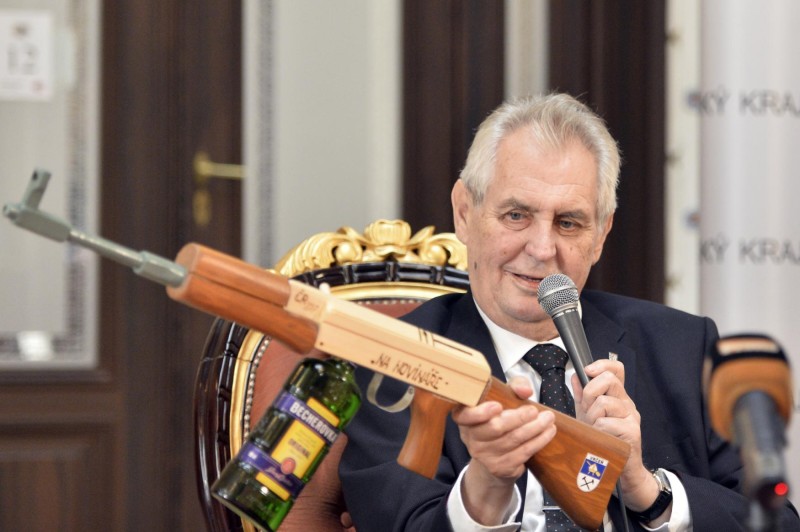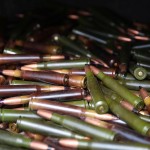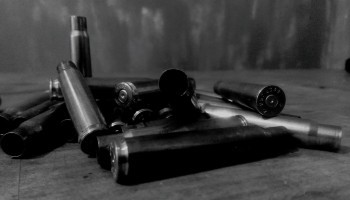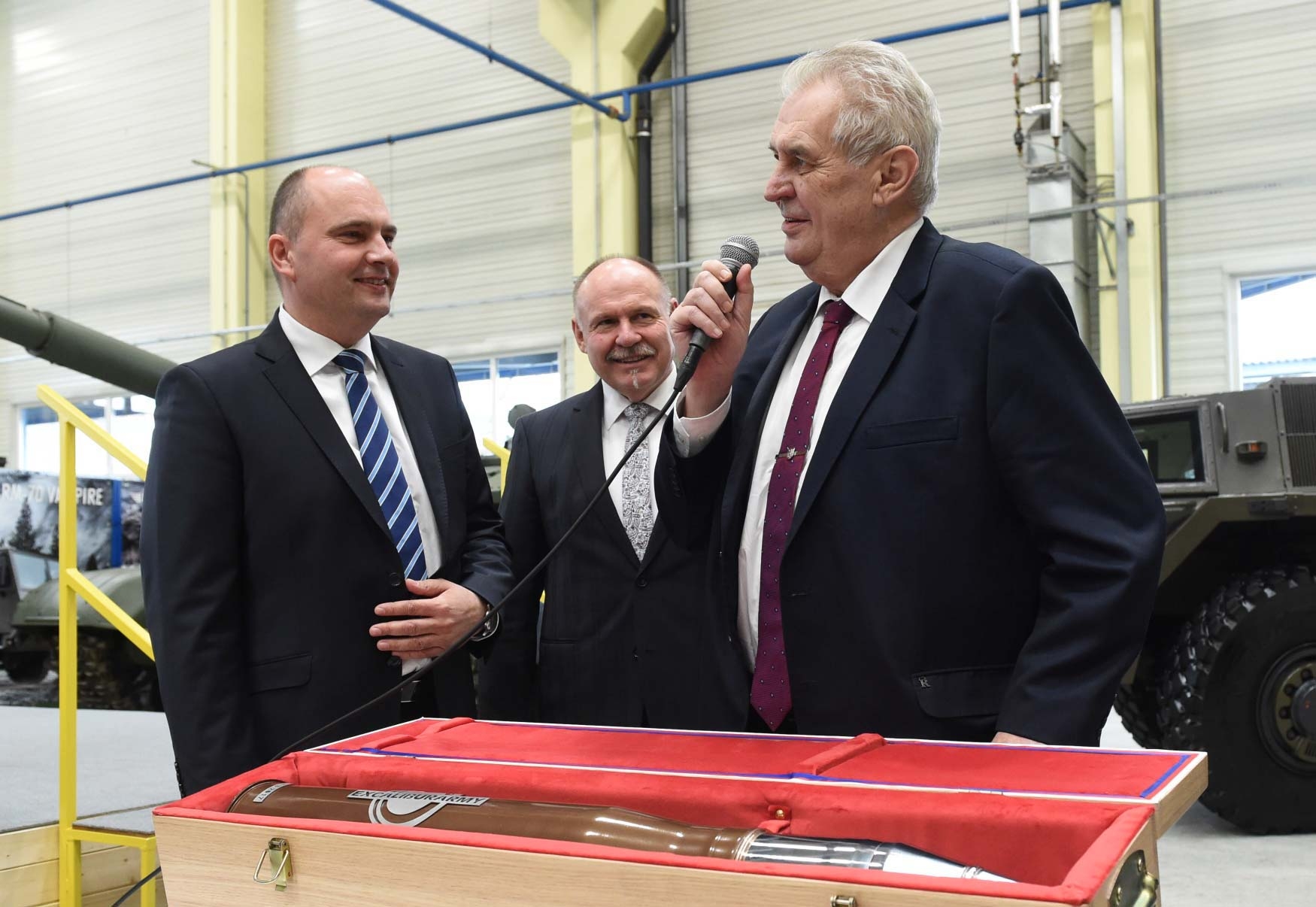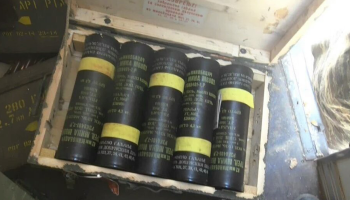Czech President Miloš Zeman likes to joke about shooting journalists.
The veteran politician, who is running for reelection this week, recently earned international opprobrium when, sporting a faux assault rifle, he figuratively took aim at the press.
As it turns out, if Zeman ever wants to make good on his threats, his chief financial backer may have plenty of bullets handy.
An investigation by the Organized Crime and Corruption Reporting Project (OCCRP) and partners reveals that companies linked to Jaroslav Strnad, Zeman’s main campaign financier, have been on a secretive, years-long Balkan shopping spree, aided in part by controversial local figures, one of whom has been investigated for criminal activity.
The purchases include the importation into the Czech Republic of tens of millions of rounds of old Chinese-made ammunition from stockpiles in Albania.
The acquisitions also include aging arms factories, bought from bankrupt companies at knock-down prices. In recent years, the Czech tycoon’s firms bought a troubled Macedonian ammunition factory and, more recently, a plant that produces military components in neighboring Serbia.
Strnad’s dealings have also involved at least two figures linked to Sašo Mijalkov, a powerful former Macedonian spy chief currently on trial for illegal wiretapping, election fraud, and torture.
The Czech buy-up goes beyond Strnad. The STV Group, another Czech firm led by businessman Martin Drda, also bought more than 30 million rounds from Albanian stockpiles.
It is uncertain why companies controlled by Strnad and Drda made the purchases.
But Strnad built his reputation and his fortune in the Czech Republic and Slovakia as an arms supplier and producer, suggesting that his goal may be to re-sell the arms at a profit.
The question is: To whom?
The decades-old Chinese ammunition he purchased is both dirt-cheap and believed to be extremely unreliable – making it very difficult to sell on legal international markets. NATO member states, including the Czech Republic, do not use such munitions. The United States has banned the import of Chinese ammunition since the 1989 Tiananmen Square massacre.
The Albanian ammunition stockpiles have gained a measure of notoriety. The 2016 Hollywood film War Dogs was based on a spectacularly botched effort by two 20-something American arms dealers to repackage and illegally sell such ammunition to the US government.

In response to reporters’ inquiries, a representative for Strnad’s companies confirmed their purchase of munitions “of Chinese and Russian production” from Albania, disputed the assertion that it may be unreliable, and insisted that “most of this ammunition was sold to customers within the European Union.”
But arms experts consulted by reporters were skeptical.
“[This] response does not seem credible to me,” said Georges Berghezan, a researcher for the Group for Research and Information on Peace and Security (GRIP).
“The field of customers [for military ammunition] in the private sector is rather limited in the EU,” he said. “And I don’t imagine public security forces in any EU country equipping [themselves] with such Soviet-style and elderly ammunition.”
Asked where such ammunition could be exported to, Pieter D. Wezeman, senior researcher at the Stockholm International Peace Research Institute (SIPRI), suggested “Africa, I’d say potentially parts of the Middle East, places like Iraq, or maybe Afghanistan.”
Representatives of STV Group declined to respond to reporters’ questions.
Brothers in Arms
Strnad enjoys a close relationship with President Zeman and is far and away his largest campaign contributor. The 45-year-old owns a slew of companies, many under his Czechoslovak Group (CSG), with interests that include transport, manufacturing, and weapons. Strnad is an owner of Tatra Trucks, one of the world’s oldest vehicle manufacturers.
Public disclosures show that one of the businessman’s firms, DAKO-CZ, has contributed a total of 2 million koruna (US$ 92,160) towards Zeman’s current campaign for re-election. Another Strnad-linked firm, Composite Components, is Zeman’s second-largest donor, giving 1 million koruna. Between them, the two firms make up two-thirds of all contributions to Zeman’s campaign.
Zeman, a Euroskeptic who has cultivated warm relations with Moscow and Beijing, came in first with 39 percent of the vote in the first round of the Czech presidential election on January 12 and 13. He will face the pro-European Jiří Drahoš, a former professor of chemical engineering, in second-round voting on January 26 and 27.
Strnad’s generosity has been matched by access to the outspoken president. Zeman has publicly boosted the Czech defense industry and visited one of Strnad’s firms, Excalibur Army, last March. Strnad flew to Russia with Zeman as part of a business delegation last November, returning with a contract to build and operate an aircraft maintenance hangar in Ulyanovsk.
Zeman has also publicly scorned his own country’s arms control rules, complaining that measures that ban the export of weapons to countries from which they could be re-exported into conflict zones were choking off business.
Efforts at control "in a totally inappropriate way restricts our export to non-embargoed countries on the pretext that there is a risk of re-exporting to countries no longer as safe," Zeman said last May.
According to Wezeman, the arms expert from SIPRI, the Czech Republic does export large amounts of arms to countries like Iraq, Saudi Arabia, and Nigeria.
Reporters have found no evidence that those countries - or any other potentially sensitive destinations - are the intended recipients of the ammunition the Czech businessmen purchased in Albania. Their ultimate purpose is -- thus far -- unknown.
But the fact that these purchases took place at all -- far from the public eye until now -- reveals the secrecy that can still surround major arms deals in the heart of Europe.
Read on to find out what the Czech companies bought in Albania.
Additional reporting by Aleksandra Denkovska and Sinead Carolan.
The story was reported in collaboration with BIRN Albania, the Czech Center for Investigative Journalism, the Crime and Corruption Reporting Network (KRIK), and NOVA TV.
